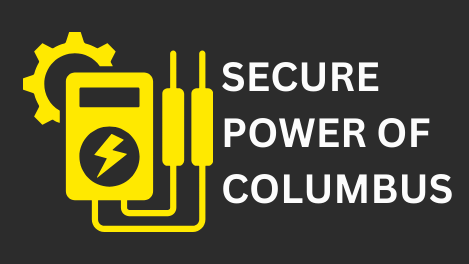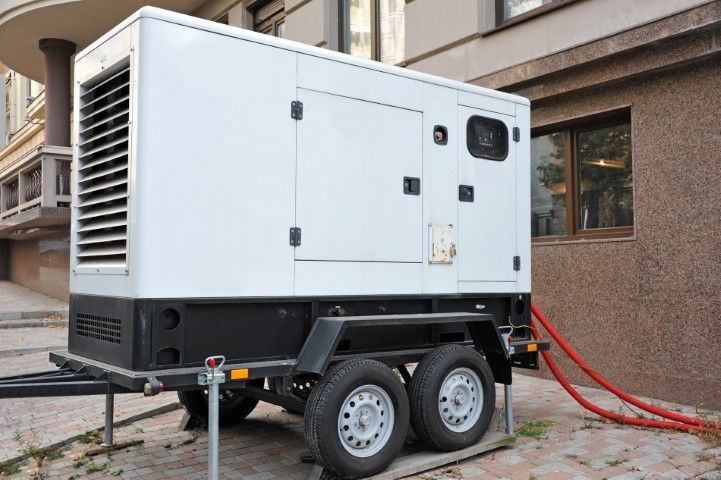
Commercial Generators in Columbus OH
Commercial generators are vital for businesses and organizations, providing backup power during outages and ensuring continuity of operations. Unlike residential generators, commercial models are built to handle higher power demands and operate for extended periods. They are essential in settings like offices, hospitals, schools, and data centers, where any interruption in power could lead to significant disruptions or losses.
Types and Key Features to Consider
When selecting a commercial generator, it's crucial to understand the different types available and their features. Generators are generally categorized into diesel, natural gas, and propane models. Diesel generators are known for their reliability and ability to handle heavy loads, making them a common choice for industries. Natural gas generators are favored for their lower emissions and reduced environmental impact. Propane generators offer flexibility in terms of fuel storage and are a viable option for various business needs.
Key features to consider include the generator's capacity, fuel efficiency, and automatic transfer switch (ATS). The capacity should match your business's power needs to ensure adequate coverage. Fuel efficiency affects operating costs and environmental footprint. An ATS allows the generator to automatically switch on when the main power source fails, minimizing downtime and maintaining business operations smoothly.
Site Assessment and Professional Installation
Proper installation of a commercial generator starts with a thorough site assessment. This process involves evaluating the location where the generator will be installed, considering factors such as ventilation, access, and proximity to fuel sources. A professional installation ensures that the generator is set up correctly, complies with local codes, and operates efficiently. Skilled technicians will handle the installation, ensuring the system is integrated seamlessly with your existing electrical infrastructure.

We will get back to you as soon as possible.
Please try again later.
Regular Maintenance
To keep a commercial generator in optimal working condition, regular maintenance is essential. Routine checks should include inspecting the fuel system, testing the battery, and verifying that the cooling system is functioning correctly. Regular maintenance helps prevent unexpected failures and extends the lifespan of the generator. Scheduled service by qualified technicians ensures that the generator remains reliable and ready for operation when needed.
Troubleshooting Common Issues
Even with regular maintenance, commercial generators may encounter issues. Common problems include starting difficulties, power output irregularities, and fuel system malfunctions. Troubleshooting these issues often requires a systematic approach. For instance, if the generator fails to start, check the fuel level, battery charge, and the condition of the starter motor. Addressing these issues promptly can prevent more significant problems and ensure the generator operates effectively.
Comparing Fuel Types and Costs
Choosing the right fuel type for your commercial generator involves comparing various options. Diesel generators, while powerful and durable, may incur higher fuel costs and require regular maintenance to manage emissions. Natural gas generators often have lower operational costs and produce fewer emissions but may require a reliable gas supply. Propane generators offer flexibility in fuel storage and are relatively clean-burning, but the cost of propane can vary based on availability and market conditions. Evaluating these factors will help determine the most cost-effective and practical fuel option for your needs.
Initial Cost vs. Long-Term Investment
The initial cost of a commercial generator is a significant consideration, but it's essential to view it as a long-term investment. While higher upfront costs might seem daunting, the reliability and operational efficiency of a quality generator can save money over time by reducing downtime and maintenance expenses. Investing in a robust generator can prevent costly disruptions and ensure that your business remains operational during power outages.
If you are looking to invest in a
commercial generator in Columbus, OH, or need assistance with installation, maintenance, or troubleshooting, our team is here to help. Contact us today to discuss your needs, get expert advice, and ensure that your business has the reliable power support it needs to thrive. Reach out to us to schedule a consultation and take the first step towards securing uninterrupted power for your operations.
Popular Uses of Commercial Generators
Commercial generators play a crucial role in ensuring businesses and institutions remain operational during power outages or when electrical demands exceed the capacity of the local grid. These generators provide a reliable backup power source, allowing businesses to maintain their activities, protect their assets, and ensure safety. They are designed to handle higher power loads than residential generators and are often used in environments where uninterrupted power is critical.

If you’re considering a commercial generator for your business or institution, don’t hesitate to reach out to us. Our team can help you assess your power needs, recommend the best solutions, and ensure a smooth installation process. Contact us today to learn more about how commercial generators can benefit your operations and provide peace of mind during power outages.
Healthcare Facilities
Hospitals and clinics rely heavily on generators to maintain power for life-support systems, medical equipment, and essential lighting. A power outage in a healthcare setting could have severe consequences, making reliable backup power a necessity.
Data Centers
Data centers house critical IT infrastructure and data storage systems. Generators are used to ensure that servers and network equipment remain operational during power interruptions, preventing data loss and maintaining continuous service.
Retail Stores
Retail businesses use generators to keep their operations running smoothly, especially during peak shopping seasons or in the event of sudden power failures. Generators help in maintaining lighting, refrigeration, and point-of-sale systems.
Educational Institutions
Schools and universities depend on generators to keep classrooms, laboratories, and administrative offices operational. This ensures that educational activities are not disrupted and that students and staff are safe during power outages.
Industrial Facilities
Factories and warehouses use commercial generators to keep machinery, production lines, and other critical operations running. Interruptions in power can lead to significant production losses and equipment damage, making a reliable generator essential.
Emergency Services
Police stations, fire departments, and emergency response centers require a continuous power supply to operate communication systems and equipment. Generators provide the necessary power to ensure that these critical services can respond effectively during power outages.
Event Venues
Convention centers, stadiums, and other large event venues use generators to ensure that events can proceed smoothly without interruptions. Generators supply power for lighting, sound systems, and other essential equipment.
Construction Sites
Temporary power at construction sites is often supplied by generators. They provide the necessary energy for tools, lighting, and equipment, allowing work to continue regardless of the power grid status.
Municipal Services
Local government buildings and facilities, such as water treatment plants and public transportation hubs, rely on generators to maintain operations and services in case of power disruptions.
Hospitality Industry
Hotels and resorts use generators to ensure guests have a continuous power supply for lighting, heating, air conditioning, and other amenities, enhancing guest comfort and satisfaction.
The Distinctions Between Residential and Commercial Generators
Generators play a crucial role in providing backup power during outages, but not all generators are created equal. Understanding the differences between residential and commercial generators can help you choose the right one for your needs. This guide will explore the key distinctions between these two types of generators, helping you make an informed decision.
Purpose and Usage
Residential generators are designed to meet the power needs of a typical home. They often handle essential appliances like refrigerators, lights, and heating systems. These generators are usually smaller and have a lower power output compared to commercial models. They are ideal for short-term use during power outages and are generally used on a less frequent basis.
In contrast, commercial generators are built to handle the demands of businesses and industrial operations. They must power large facilities, equipment, and sometimes entire office buildings or manufacturing plants. Due to their higher power output and robust design, commercial generators are used more regularly and need to withstand longer periods of operation.
Power Output
The power output of residential generators typically ranges from 5,000 to 20,000 watts. This range is sufficient for most household needs, including running several appliances and lights simultaneously. Some residential models offer automatic transfer switches that activate the generator when power goes out, ensuring a seamless transition.
Commercial generators, on the other hand, can produce much higher power levels, ranging from 20,000 watts to over 2,000,000 watts. This higher capacity ensures that all critical systems and equipment in a business can continue to operate during an outage. These generators are often customized to meet specific power requirements and may include features like multiple parallel generators for increased reliability.
Size and Installation
Residential generators are generally compact and can be installed in smaller spaces. They are often designed to blend in with the home environment and may be placed in a garage, basement, or an outdoor enclosure. Installation is usually straightforward and can be handled by a professional with minimal disruption to the household.
Commercial generators are much larger and require significant space for installation. They are often installed in dedicated generator rooms or outdoor enclosures with ample ventilation. The installation process for commercial generators can be complex, often involving extensive site preparation and coordination with local regulations and building codes.
Fuel Types
Residential generators commonly use gasoline, propane, or natural gas. These fuel types are readily available and suitable for the generator’s power needs. Gasoline-powered generators are often portable, while propane and natural gas models offer convenience with less frequent refueling.
Commercial generators typically use diesel, natural gas, or propane. Diesel is a popular choice for its high energy density and long running time, making it suitable for continuous operation in commercial settings. Natural gas and propane are also used, particularly in facilities with existing fuel infrastructure or where emissions and safety regulations dictate their use.
Maintenance and Durability
Residential generators generally require less maintenance due to their smaller size and less frequent use. Routine maintenance involves checking oil levels, filters, and battery health. These generators are designed for occasional use and have a lifespan of around 10 to 15 years with proper care.
Commercial generators, however, are built for durability and require more rigorous maintenance schedules. They are subjected to heavier use and need regular inspections, servicing, and sometimes more extensive repairs. Commercial generators are engineered to operate under demanding conditions and often have a longer lifespan, sometimes exceeding 20 years with proper maintenance.
Cost
The cost of residential generators is generally lower, reflecting their smaller size and lower power output. Prices can range from a few hundred to several thousand dollars, depending on the brand, capacity, and features. Installation costs are usually lower as well, given the simpler setup requirements.
Commercial generators represent a significant investment due to their larger size, higher power output, and advanced features. Prices can range from several thousand to hundreds of thousands of dollars. The installation process is more complex, and associated costs can be substantial, reflecting the need for specialized equipment and compliance with regulatory standards.
Choosing the right generator for your needs requires careful consideration of your power requirements and usage patterns. Whether you need a reliable residential generator or a robust commercial unit, we are here to help. Contact us today for expert advice and tailored solutions to ensure you have the right generator for your home or business. Our team is ready to assist you with all your generator needs, from selection and installation to maintenance and support.
Let's Connect!
We offer top-notch whole house generator solutions. Our team is dedicated to ensuring your home stays powered during outages. Learn about How Whole House Generators Work in our Buyer's Guide. Don't let unexpected power outages disrupt your life. Contact us today for reliable backup power solutions and embrace a worry-free lifestyle.